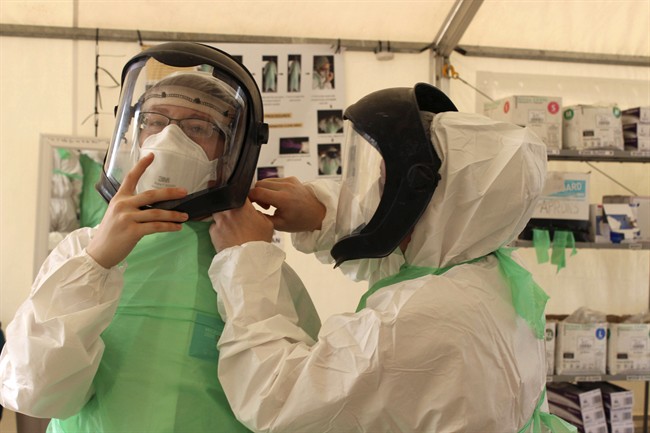LONDON – The number of Ebola cases in West Africa has gone up for the first time this year, the World Health Organization says, warning that the coming rainy season could complicate efforts to contain the disease.

In an update published online Wednesday, the U.N. health agency said there were 124 confirmed cases last week, up from 99 the week before.
WHO said there are continuing problems tracking the spread of the virus. Only 21 per cent of new cases in Sierra Leone were from known contacts, meaning health officials have no idea how the majority of new patients are being infected and where the virus might be lurking.
In Guinea, about half of new patients were from contacts of other cases, and 10 of 34 prefectures in the country reported at least one security problem or refusal to co-operate with international aid efforts in the last week. Ebola is also continuing to spread to new areas in Guinea, close to the border with Mali.
WHO noted that a single unsafe burial in Guinea in early January sparked nearly a dozen confirmed cases. The bodies of people killed by Ebola are highly infectious and traditional burial practices that involve washing or kissing the body are extremely risky.
“A rise in incidence shows that the (Ebola) response still faces significant challenges,” WHO said, adding that the wet season will make it hard to get to remote areas.
To date, the virus is believed to have killed nearly 9,000 people and the death rate is estimated to be between 50 and 60 per cent in West Africa for people hospitalized with the disease.
At a WHO Ebola meeting last month, the agency’s chief Dr. Margaret Chan said data showed that “we have bent the (epidemic) curve and avoided the worst-case scenario,” after earlier predicting there might be as many as 10,000 cases per week. She said the agency was focused on getting to zero cases but that “high-risk situations” were still occurring.

Comments